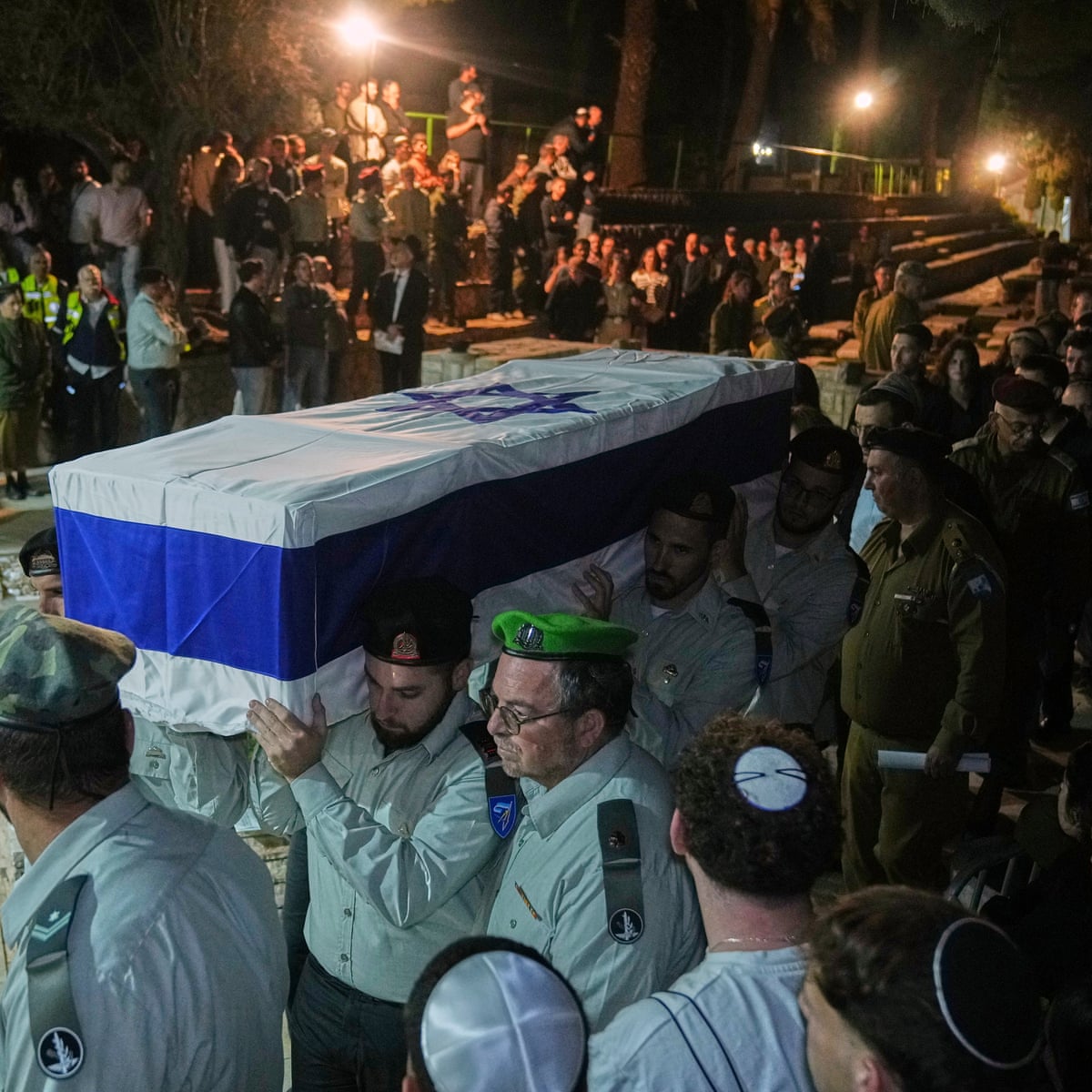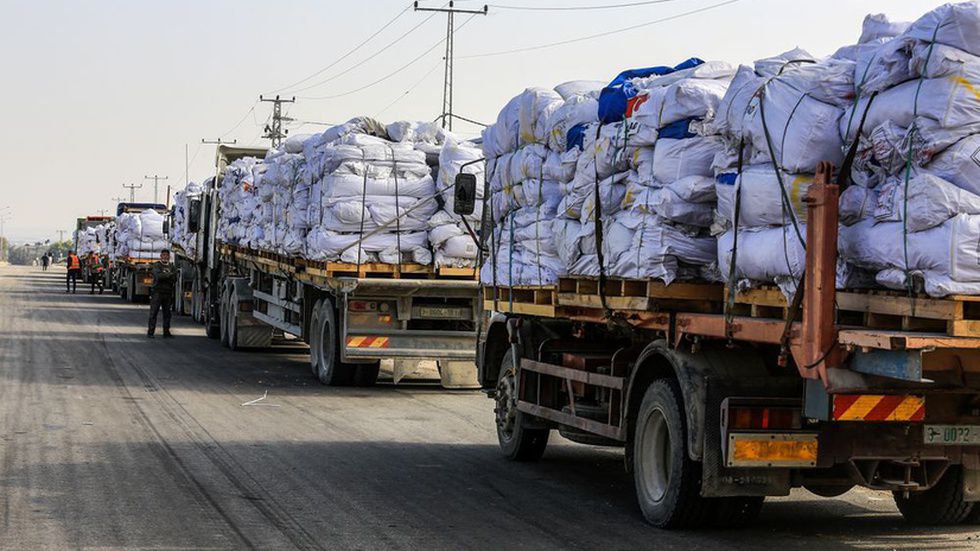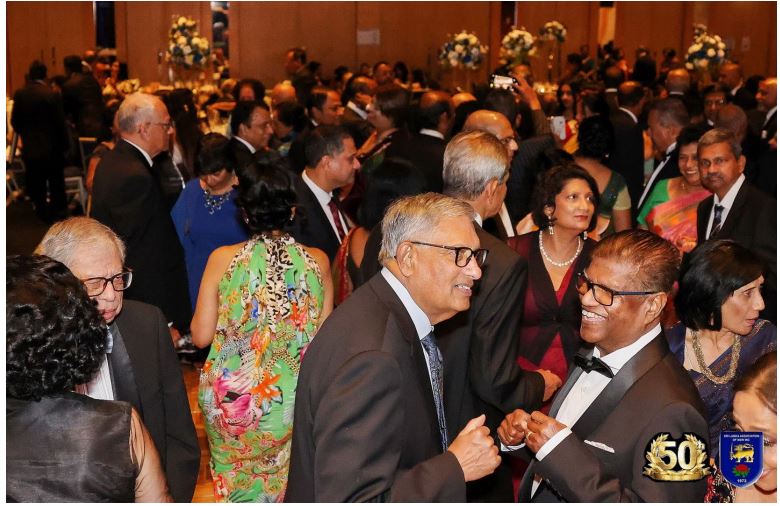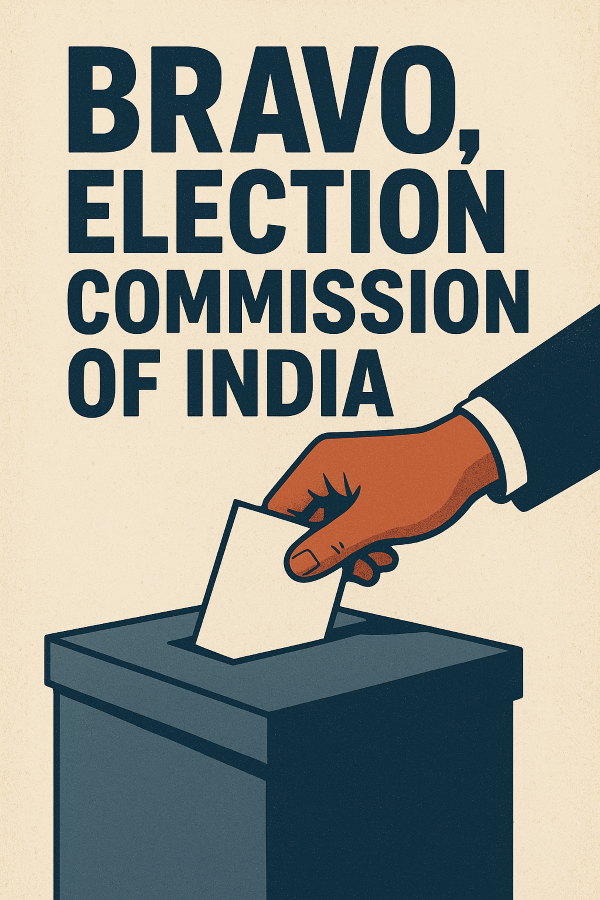Gaza Peace Plan at a Precarious Crossroads: Aid, Accountability, and the Price of Delay – By Dr Harold Gunatillake
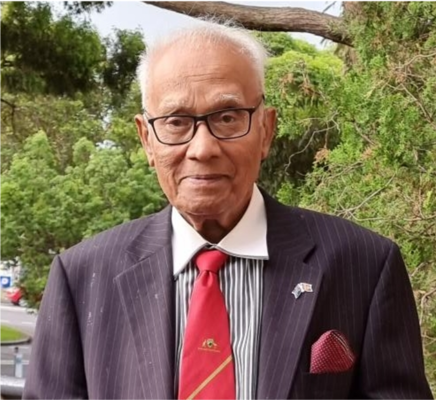
Image Source : instagram
A billboard featuring US President Donald Trump and Egyptian President Abdel Fattah el-Sissi in Sharm El-Sheikh, Egypt, on October 13, 2025. KHALED DESOUKI/AFP
As the dust settles over Sharm el-Sheikh, where world leaders recently endorsed a US-led peace initiative for Gaza, the fragile hope for a lasting ceasefire is already under siege. On Wednesday, UN Emergency Relief Coordinator Tom Fletcher issued a stark warning: the agreement between Israel and Hamas—to return deceased hostages and allow humanitarian aid at scale—must not become a bargaining chip. The cost of delay, he emphasised, is measured in civilian lives.
A Moment of Hope, Shadowed by Violence
“This is a moment of great but precarious hope,” Fletcher said, acknowledging the public yearning for peace among Palestinians, Israelis, and communities across the region. Yet, even as aid trucks begin to roll into Gaza, reports of extrajudicial executions and renewed killings threaten to unravel the progress.
Israel’s escalating robot deployments continue to instil fear within Gaza communities.
Israeli forces have obliterated entire neighbourhoods in Gaza through the deployment of remotely controlled explosives.
In Jabalia, Sheikh Radwan, Abu Iskandar, and surrounding areas, residents returned to neighbourhoods that had been flattened.
They were aware that, amidst the debris, some of the explosive robots responsible for the destruction remained, silent and undetonated.
The UN human rights office (OHCHR) has documented alarming incidents: on October 13, eight blindfolded and handcuffed men were publicly executed by Gaza’s Sahm Unit, allegedly linked to the Interior Ministry. OHCHR condemned the act as a war crime and urged Hamas to prevent further abuses. Meanwhile, Israeli forces reportedly opened fire on Palestinians attempting to return to their homes in eastern Gaza City, killing three. Fifteen such deaths have been recorded since October 10.
Image source : theguardian.com
Israeli soldiers carry the coffin of slain hostage Captain Daniel Peretz during his funeral in Jerusalem after his body was returned to Israel Photograph: Francisco Seco/AP
Aid at Scale: A Legal Obligation, Not a Concession
Fletcher’s appeal was unequivocal. Hamas must urgently return the bodies of deceased hostages, and Israel must facilitate the “massive surge of humanitarian aid—thousands of trucks a week—on which so many lives depend”. Additional border crossings must be opened, and logistical barriers lifted. “Facilitation of aid is a legal obligation,” Fletcher stressed. “We will not accept any interference with our aid distribution.”
Image Source : dnoticias.pt
The UN’s 60-day humanitarian plan is ambitious, encompassing food assistance for 2.1 million people, nutrition programs for vulnerable groups, the restoration of health services, water and sanitation projects, shelter for displaced
families, and temporary educational spaces. However, implementation hinges on sustained peace and a strong political will.
The Ceasefire’s Fragile Foundation
The ceasefire, brokered by US mediators with support from Egypt, Qatar, and Türkiye, has led to the release of all living hostages and the entry of 190,000 metric tons of aid into Gaza. Yet, the humanitarian corridor remains tenuous. Israeli officials approved 600 trucks under the truce, but Fletcher insists thousands are needed weekly to avert famine and restore dignity.
The Western-backed Palestinian Authority has offered to help reopen the Rafah crossing, a move welcomed by the UN. Medical evacuations and NGO access are now priorities, as looting of aid trucks—once rampant—has declined with increased deliveries.
A Test of Will and Humanity
The Gaza peace plan is not just a diplomatic blueprint—it is a moral test. Will the parties honor their commitments, or will political calculus eclipse human suffering? Fletcher’s words echo with urgency: “We are now tested to see whether we can ensure that these [setbacks] do not prevent the progress on which President Trump, the UN Secretary-General, and so many leaders have insisted”.
Gaza health officials report that numerous of the 90 returned bodies exhibit evidence of violence and potential executions, indicating signs of torture on Palestinian bodies returned by Israel (Alazeera) As Gaza teeters between recovery and relapse, the world watches. The ceasefire must hold—not as a pause in violence, but as a bridge to Justice, dignity, and enduring peace.
President Donald Trump stated on Wednesday that he would contemplate permitting Israeli Prime Minister Benjamin Netanyahu to recommence military operations in Gaza if Hamas fails to fulfil its obligations under the ceasefire agreement. He informed CNN that Israeli forces could re-enter the streets “as soon as I give the command.
This is how things stand as I write this article.



